Exploring the Benefits of Tomato Paste without Additives Introduction: In recent years, there has been a growing concern among consumers about the use of additives in the food industry. This has resulted in increased demand for natural and additive-free products. Tomato paste is one such product that has attracted attention due to its versatility and health benefits. In this article, we will delve into the world of tomato paste without additives, exploring its production process, nutritional value, and various culinary applications. Understanding Tomato Paste: Tomato paste is a thick, concentrated tomato product made by cooking tomatoes for an extended period and removing the seeds and skin. It is an essential ingredient in the culinary world and widely used to enhance the flavor and color of various dishes. Tomato paste without additives, also known as pure tomato paste, is produced without the addition of any artificial colors, flavors, or preservatives, ensuring a clean and natural product. Production Process: The production process of tomato paste without additives is relatively straightforward. Ripe tomatoes are first washed and crushed to create a smooth consistency. This mixture is then heated to evaporate the excess water content, concentrating the tomato flavor. Following this, the mixture is strained to remove any seeds and skin debris, resulting in a smooth and rich tomato paste. The absence of additives ensures that the product retains the natural flavors and nutrients found in tomatoes.
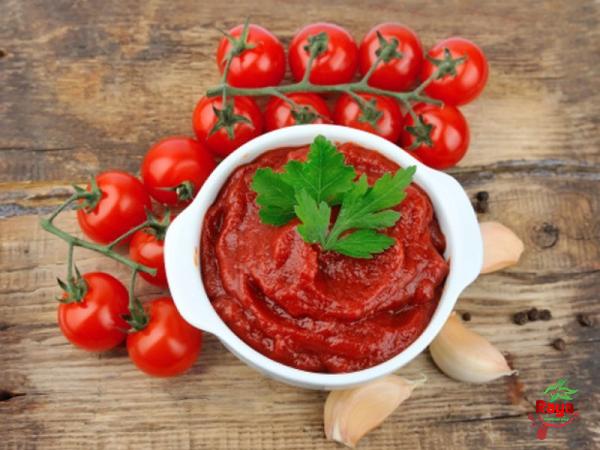
tomato paste
 Nutritional Value: Tomato paste without additives offers a range of health benefits due to its high concentration of vitamins, minerals, and antioxidants. It is a rich source of vitamins A, C, and K, as well as a good source of potassium and dietary fiber. These nutrients play an important role in maintaining a healthy immune system, promoting bone health, and reducing the risk of chronic diseases. Additionally, tomato paste is known to be a powerful antioxidant due to its high lycopene content, which has been associated with reducing the risk of heart disease and certain types of cancer. Culinary Applications: The versatility of tomato paste without additives makes it a staple ingredient in countless recipes. Its deep, concentrated flavor enhances the taste profile of soups, stews, sauces, and marinades. When used in moderation, it adds depth and richness to dishes, creating a delightful flavor base. Tomato paste can also be used to make homemade pizza sauce, curry pastes, and various condiments. Its robust flavor acts as a natural umami enhancer, making it an ideal choice for vegetarian and vegan recipes. Advantages of Tomato Paste without Additives: 1. Purity: Tomato paste without additives provides a pure and untainted tomato flavor. Its production process ensures that no additional ingredients compromise the natural taste of tomatoes. 2. Versatility: Due to its thick and concentrated nature, a small amount of tomato paste goes a long way. It can be used in a variety of recipes, adding depth, richness, and complexity of flavors. 3. Nutritional Benefits: Tomato paste without additives retains the nutritional value of tomatoes, offering vitamins, minerals, antioxidants, and dietary fiber. It is an excellent addition to a balanced and wholesome diet. 4. Clean Label: The absence of additives and artificial ingredients in tomato paste aligns with the growing consumer preference for clean label products. It caters to those seeking pure and natural food options. Conclusion: Tomato paste without additives provides a natural and flavorful ingredient that adds depth and richness to a wide range of dishes. Its production process, nutritional benefits, and versatility make it an excellent choice for those looking for a pure and additive-free option. By choosing tomato paste without additives, consumers can savor the true essence of tomatoes while promoting a healthier lifestyle.Title: Exploring the Benefits of Tomato Paste without Additives 1. Growing Consumer Demand for Additive-Free Products: The demand for food products free from additives has witnessed significant growth in recent years. Consumers are becoming increasingly conscious about the potential negative effects of artificial colors, flavors, and preservatives on their health. Tomato paste without additives caters to this rising consumer preference for clean label products, meeting the demand for unadulterated and natural ingredients.
Nutritional Value: Tomato paste without additives offers a range of health benefits due to its high concentration of vitamins, minerals, and antioxidants. It is a rich source of vitamins A, C, and K, as well as a good source of potassium and dietary fiber. These nutrients play an important role in maintaining a healthy immune system, promoting bone health, and reducing the risk of chronic diseases. Additionally, tomato paste is known to be a powerful antioxidant due to its high lycopene content, which has been associated with reducing the risk of heart disease and certain types of cancer. Culinary Applications: The versatility of tomato paste without additives makes it a staple ingredient in countless recipes. Its deep, concentrated flavor enhances the taste profile of soups, stews, sauces, and marinades. When used in moderation, it adds depth and richness to dishes, creating a delightful flavor base. Tomato paste can also be used to make homemade pizza sauce, curry pastes, and various condiments. Its robust flavor acts as a natural umami enhancer, making it an ideal choice for vegetarian and vegan recipes. Advantages of Tomato Paste without Additives: 1. Purity: Tomato paste without additives provides a pure and untainted tomato flavor. Its production process ensures that no additional ingredients compromise the natural taste of tomatoes. 2. Versatility: Due to its thick and concentrated nature, a small amount of tomato paste goes a long way. It can be used in a variety of recipes, adding depth, richness, and complexity of flavors. 3. Nutritional Benefits: Tomato paste without additives retains the nutritional value of tomatoes, offering vitamins, minerals, antioxidants, and dietary fiber. It is an excellent addition to a balanced and wholesome diet. 4. Clean Label: The absence of additives and artificial ingredients in tomato paste aligns with the growing consumer preference for clean label products. It caters to those seeking pure and natural food options. Conclusion: Tomato paste without additives provides a natural and flavorful ingredient that adds depth and richness to a wide range of dishes. Its production process, nutritional benefits, and versatility make it an excellent choice for those looking for a pure and additive-free option. By choosing tomato paste without additives, consumers can savor the true essence of tomatoes while promoting a healthier lifestyle.Title: Exploring the Benefits of Tomato Paste without Additives 1. Growing Consumer Demand for Additive-Free Products: The demand for food products free from additives has witnessed significant growth in recent years. Consumers are becoming increasingly conscious about the potential negative effects of artificial colors, flavors, and preservatives on their health. Tomato paste without additives caters to this rising consumer preference for clean label products, meeting the demand for unadulterated and natural ingredients.
Specifications of tomato paste
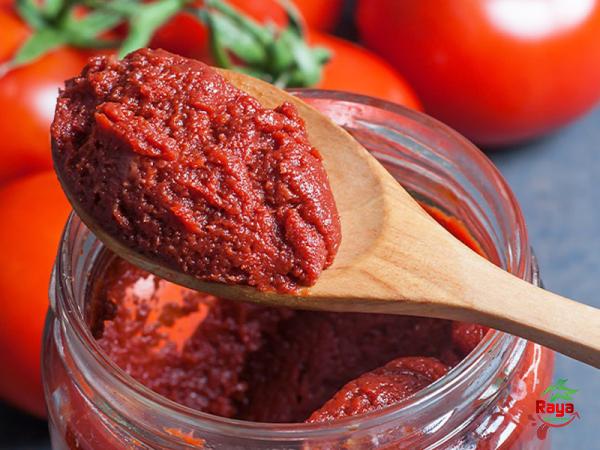 2. Market Analysis: Opportunities and Trends: The market for tomato paste without additives is expected to flourish as more consumers opt for healthier food choices. Manufacturers and suppliers in the food industry have recognized this trend and are now offering a wide range of pure tomato paste options to cater to the growing demand. Additionally, the rise in plant-based diets and vegetarian/vegan lifestyles is also contributing to the increased consumption of tomato paste without additives. 3. Positioning and Branding: Companies can differentiate themselves in the market by showcasing their commitment to providing high-quality tomato paste without additives. Positioning the product as clean, natural, and wholesome can be an effective branding strategy. By emphasizing the absence of additives and promoting the nutritional benefits of the product, companies can build trust with health-conscious consumers. 4. Collaborations with Suppliers: To ensure a consistent supply of high-quality tomatoes, companies can establish partnerships with reliable suppliers. Collaborating with farmers who cultivate organic, non-GMO tomatoes can help ensure the production of tomato paste without additives. By maintaining close relationships with suppliers, companies can guarantee the production of a pure and natural product. 5. Product Development and Innovation: There is ample opportunity for innovation in the tomato paste without additives market. Companies can experiment with different varieties of tomatoes to create unique flavor profiles or develop value-added products such as flavored tomato paste or organic options. Additionally, exploring packaging solutions that preserve the freshness and quality of the tomato paste can also attract consumers seeking convenient and high-quality options. 6. Marketing and Communication Strategies: To effectively promote tomato paste without additives, businesses can focus on educating consumers about the benefits of choosing a pure and natural product. Marketing campaigns can highlight the superior taste, nutritional value, and versatility of tomato paste without additives. Social media platforms and health-focused publications can serve as effective channels to disseminate information and engage with target audiences. 7. Ensuring Quality and Food Safety: Maintaining strict quality control measures and adhering to food safety regulations is crucial for companies producing tomato paste without additives. Regular testing for contaminants and ensuring compliance with food safety standards will help build trust and credibility among consumers. Certifications such as organic or non-GMO can further enhance the appeal of the product and attract health-conscious consumers.
2. Market Analysis: Opportunities and Trends: The market for tomato paste without additives is expected to flourish as more consumers opt for healthier food choices. Manufacturers and suppliers in the food industry have recognized this trend and are now offering a wide range of pure tomato paste options to cater to the growing demand. Additionally, the rise in plant-based diets and vegetarian/vegan lifestyles is also contributing to the increased consumption of tomato paste without additives. 3. Positioning and Branding: Companies can differentiate themselves in the market by showcasing their commitment to providing high-quality tomato paste without additives. Positioning the product as clean, natural, and wholesome can be an effective branding strategy. By emphasizing the absence of additives and promoting the nutritional benefits of the product, companies can build trust with health-conscious consumers. 4. Collaborations with Suppliers: To ensure a consistent supply of high-quality tomatoes, companies can establish partnerships with reliable suppliers. Collaborating with farmers who cultivate organic, non-GMO tomatoes can help ensure the production of tomato paste without additives. By maintaining close relationships with suppliers, companies can guarantee the production of a pure and natural product. 5. Product Development and Innovation: There is ample opportunity for innovation in the tomato paste without additives market. Companies can experiment with different varieties of tomatoes to create unique flavor profiles or develop value-added products such as flavored tomato paste or organic options. Additionally, exploring packaging solutions that preserve the freshness and quality of the tomato paste can also attract consumers seeking convenient and high-quality options. 6. Marketing and Communication Strategies: To effectively promote tomato paste without additives, businesses can focus on educating consumers about the benefits of choosing a pure and natural product. Marketing campaigns can highlight the superior taste, nutritional value, and versatility of tomato paste without additives. Social media platforms and health-focused publications can serve as effective channels to disseminate information and engage with target audiences. 7. Ensuring Quality and Food Safety: Maintaining strict quality control measures and adhering to food safety regulations is crucial for companies producing tomato paste without additives. Regular testing for contaminants and ensuring compliance with food safety standards will help build trust and credibility among consumers. Certifications such as organic or non-GMO can further enhance the appeal of the product and attract health-conscious consumers.
buy tomato paste
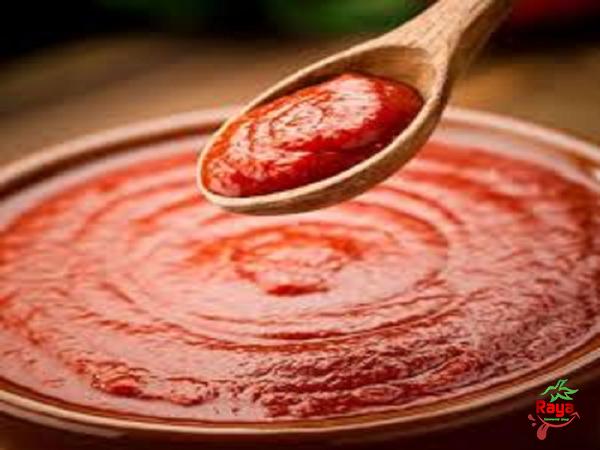 8. Distribution Channels: Tomato paste without additives can be made available through various distribution channels. Supermarkets, specialized health food stores, and online platforms are popular avenues for consumers to purchase such products. Collaborating with distributors to ensure wide availability and strategic placement in retail outlets can help increase the visibility and accessibility of tomato paste without additives. 9. Partnerships with Food Manufacturers and Restaurants: Tomato paste without additives can be used as a key ingredient by food manufacturers and restaurants in a wide range of products and dishes. Partnering with these entities can create opportunities for the product to reach a larger consumer base. By supplying pure tomato paste to manufacturers who value additive-free ingredients, businesses can capitalize on the growing demand for clean label products. 10. Addressing Cost Concerns: One challenge businesses might face in producing tomato paste without additives is the impact on cost. The absence of additives and the use of high-quality ingredients can drive up production costs. However, companies can explore strategies such as bulk purchasing, optimizing production processes, and efficient inventory management to ensure competitive pricing without compromising on quality. Conclusion: Tomato paste without additives offers numerous benefits for consumers who prioritize clean label products. As the demand for additive-free options continues to rise, businesses have the opportunity to position themselves as providers of high-quality, natural, and flavorful tomato paste. By implementing effective marketing strategies, collaborating with suppliers and food manufacturers, and maintaining a commitment to quality and food safety, companies can capitalize on the growing market for tomato paste without additives and cater to the evolving preferences of health-conscious consumers.
8. Distribution Channels: Tomato paste without additives can be made available through various distribution channels. Supermarkets, specialized health food stores, and online platforms are popular avenues for consumers to purchase such products. Collaborating with distributors to ensure wide availability and strategic placement in retail outlets can help increase the visibility and accessibility of tomato paste without additives. 9. Partnerships with Food Manufacturers and Restaurants: Tomato paste without additives can be used as a key ingredient by food manufacturers and restaurants in a wide range of products and dishes. Partnering with these entities can create opportunities for the product to reach a larger consumer base. By supplying pure tomato paste to manufacturers who value additive-free ingredients, businesses can capitalize on the growing demand for clean label products. 10. Addressing Cost Concerns: One challenge businesses might face in producing tomato paste without additives is the impact on cost. The absence of additives and the use of high-quality ingredients can drive up production costs. However, companies can explore strategies such as bulk purchasing, optimizing production processes, and efficient inventory management to ensure competitive pricing without compromising on quality. Conclusion: Tomato paste without additives offers numerous benefits for consumers who prioritize clean label products. As the demand for additive-free options continues to rise, businesses have the opportunity to position themselves as providers of high-quality, natural, and flavorful tomato paste. By implementing effective marketing strategies, collaborating with suppliers and food manufacturers, and maintaining a commitment to quality and food safety, companies can capitalize on the growing market for tomato paste without additives and cater to the evolving preferences of health-conscious consumers.





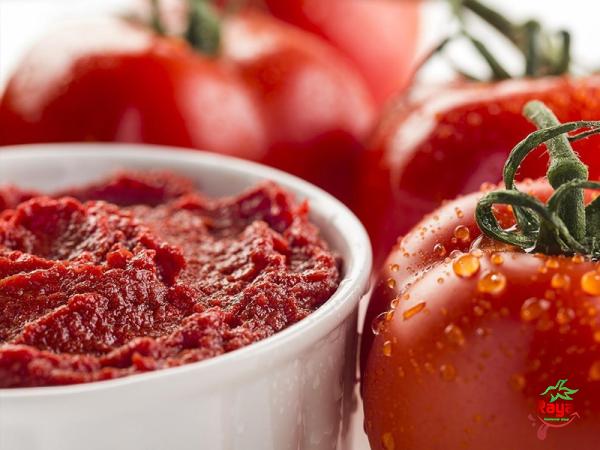


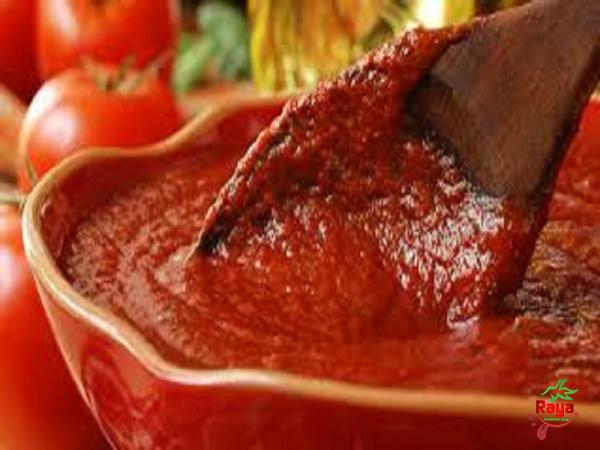
Your comment submitted.